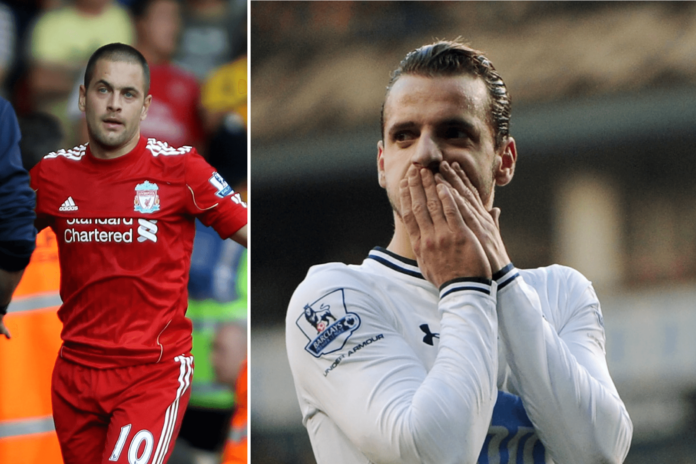When transfer windows go right, they can set a manager and a team up for a successful season or kick off a new era.
When they go wrong, however, they can go very wrong.
From the early departures of managers after a disappointing summer to relegations or even financial turmoil, a disappointing transfer window can prove disastrous for clubs.
Having already brought you our selection of the best transfer windows for each club last week, now it’s time to look at those that didn’t quite work out so well.
Get the latest transfer news on The Athletic¬
Worst window: Summer 2015
If there was a window to sum up the frustrations with Arsenal’s passivity in the market it was summer 2015, when their only signing was a 33-year-old goalkeeper.
Though that goalkeeper was Petr Cech — who later kept 16 clean sheets to win the Golden Glove — the 2015-16 campaign was one of opportunity. Arsenal’s traditional rivals faltered and they finished second, 10 points behind Leicester City and there has always been a thought of ‘what if’ had they invested in even one outfield player that summer.
A close runner-up is the summer window of 2011. Cesc Fabregas, Samir Nasri and Gael Clichy — all entering their mid-20s — left despite being vital parts of Arsene Wenger’s side. Arsenal then signed Gervinho and Alex Oxlade-Chamberlain, and although their deadline-day dash brought Mikel Arteta and Per Mertesacker, it was a scattergun end to a gutting summer.
Art de Roché
Should Arsenal have gone stronger in summer 2015? (Ian Kington/AFP via Getty Images)
Worst window: Summer 2015
The summer of 2015 was when everything went wrong. The season started — and basically ended — in Bournemouth on the opening day, where new signing Rudy Gestede scored the only goal to give Villa three points and the only sense of optimism in an altogether horrendous campaign, finishing rank bottom with 17 points.
That opening-day win served as a false dawn, with Micah Richards captain and one of 12 new signings that joined. Gestede came and went, the three Jordans — Ayew, Veretout and Amavi — became annoyingly good once they left Villa, as did a young Adama Traore.
Scott Sinclair was already on the slide and Joleon Lescott’s time at Villa would be known for his apparent accidental tweeting of a new car immediately after relegation was sealed. Idrissa Gueye was the only solid buy. A bleak summer.
Jacob Tanswell
Worst window: Summer 2022
Bournemouth’s hit rate since their first promotion to the Premier League in 2015 has been good, based on recruiting unearthed gems and, recently, young talent from abroad.
Still, Scott Parker’s brief top-flight stay in 2022 was littered with in-fighting and squabbles over recruitment, exacerbated by the ownership flux, with incoming owner Bill Foley waiting to be rubber-stamped.
It meant Parker had what he viewed as little support in the market, claiming his side were “under-equipped”. Goalkeeper Neto and midfielder Joe Rothwell signed for free, while resources stretched to sign Marcus Tavernier and Marcos Senesi — two good players who are flourishing under Andoni Iraola, but not who Parker wanted.
Jacob Tanswell
Worst window: Summer 2022
Fans thought the 2020 window had been a disaster after Brentford lost the Championship play-off final to their west London rivals Fulham and then sold Ollie Watkins and Said Benrahma. But Ivan Toney and Vitaly Janelt arrived and Brentford finished the season by winning the play-offs so it looks far better in hindsight.
The reverse logic could be applied to 2022. Keane Lewis-Potter, Aaron Hickey and Mikkel Damsgaard were signed for around £45million ($58.1m at today’s conversion rates) combined but injuries and dips in form mean they have not shown their best. Thomas Strakosha arrived as competition for David Raya but left after two years having made more appearances for Albania (12) than Brentford during that time (six). Ben Mee joined for free but Christian Eriksen turned down a contract to join Manchester United.
It may be too soon to definitively call this their worst window in history but it certainly stands out as being below par by Brentford’s lofty standards over the last decade.
Jay Harris
Worst window: January 2018
Brighton’s business has not always been as good as it has been in the majority of recent windows.
The outcomes were sketchy when they were still finding their feet as a Premier League club after promotion in 2017.
In January 2018, they splashed out around £14million on Jurgen Locadia, a club-record outlay at that time. The forward proved a big disappointment, playing only 46 games and scoring six goals. Brighton make big annual profits now, but they were still incurring substantial losses back then, so it was a costly mistake.
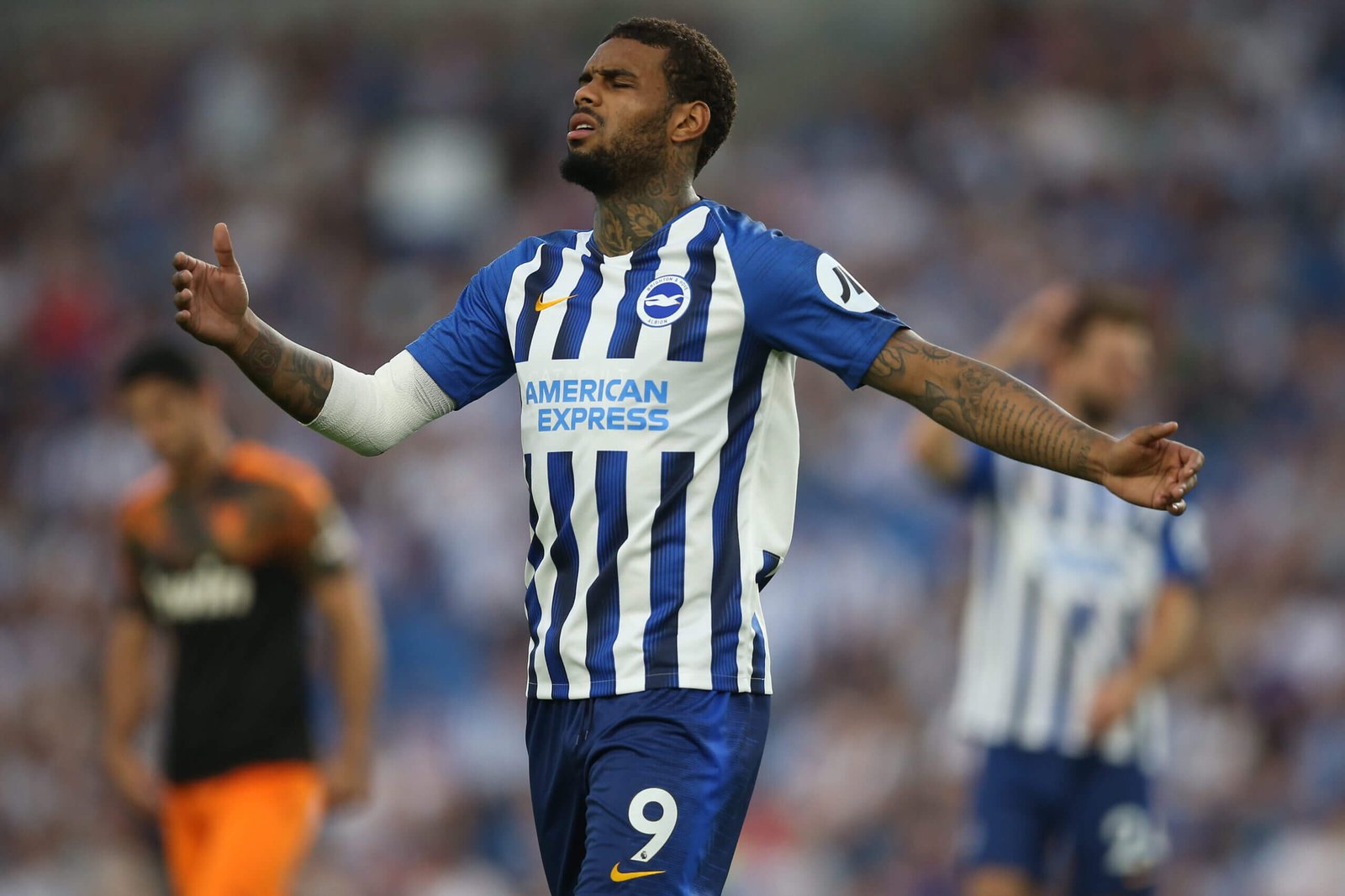
Jurgen Locadia was a club-record signing at the time (Steve Bardens/Getty Images)
The same was true of Alireza Jahanbakhsh in the summer of 2018 for £17million from AZ Alkmaar, but fans still fondly recall the Iran winger’s overhead kick against Chelsea. Also, his arrival was accompanied by Yves Bissouma and Jason Steele.
Andy Naylor
Chelsea
Worst window: Summer 2017
The disastrous summer of 2017 still sparks shudders in Chelsea supporters.
Fresh from winning the Premier League title, Antonio Conte felt he had earned a big voice in Chelsea’s recruitment. He submitted a list of high-profile targets that included Romelu Lukaku, Virgil van Dijk, Alex Sandro, Radja Nainggolan and Kyle Walker.
Chelsea tried to bring Lukaku back from Everton but were outflanked by Jose Mourinho and Manchester United, before pivoting to Alvaro Morata of Real Madrid. Conte also had to settle for Davide Zappacosta (Torino), Tiemoue Bakayoko (Monaco) and Danny Drinkwater (Leicester City), with the latter pair becoming liabilities long before they were released as free agents.

Danny Drinkwater was among Chelsea’s 2017 signings (Ben Stansall/AFP via Getty Images)
The sale of Nemanja Matic to United for £40million aged well but deprived Conte of vital midfield experience. The club also took a loss on sending Juan Cuadrado back to Serie A and sold Nathan Ake to Bournemouth for £20million — much less than his peak transfer value.
Liam Twomey
Worst window: Summer 2017
A memorable window for all the wrong reasons with Palace’s new manager Frank de Boer sacked 10 days after it closed, just four games into the Premier League season — all of which his team lost, all without scoring.
Mamadou Sakho joined from Liverpool for £26million after an excellent loan spell in the second half of 2016-17 but was unable to reach those same levels again. Jairo Riedewald arrived from Ajax for £8m, and although he proved to be an excellent mentor for the club’s younger players, his contribution on the pitch was limited. He did, however, spend seven seasons at Palace covering various positions and made 106 appearances in all competitions.
Midfielder Ruben Loftus-Cheek impressed to such an extent on a season’s loan from Chelsea that he made the England squad for the following summer’s World Cup, but Timothy Fosu-Mensah struggled at right-back after being loaned from Manchester United.
The squad had been insufficiently strengthened in this window but De Boer’s replacement Roy Hodgson was still able to guide them to an 11th-place finish.
Matt Woosnam
Everton
Worst window: Summer 2017
There is an obvious answer here for anyone who follows Everton; one that shines a light on the glaring dysfunction of the Farhad Moshiri years.
Let’s go back to the summer of 2017 and the arrival of not one, not two… not even three… but four No 10s in the form of Wayne Rooney, Gylfi Sigurdsson, Davy Klaassen and Nikola Vlasic.
Mad, right? Well, that’s what happens when so many different people are feeding into the recruitment process — owners, board members, managers and other staff — and each one gets a pick. The bizarre splurge left Ronald Koeman’s side lacking balance — particularly out wide — and also led to financial problems later on.
A case study on how not to do your recruitment.
Patrick Boyland

Davy Klaassen failed to impress (Alex Livesey/Getty Images)
Fulham
Worst window: Summer 2012
There have been some bad windows at Craven Cottage in recent years.
The summer of 2015 did bring Tim Ream, Tom Cairney and Ryan Fredericks, but it also brought nine other new players, the most notable of which was Jamie O’Hara. January 2014, meanwhile, saw a record fee spent on a striker, Kostas Mitroglou, who would play only 151 minutes (three appearances, zero goals) in the club’s unsuccessful fight against relegation.
But the winner here is the one at the start of the 2012-13 season.
It set in motion a tricky decade, as Fulham sold Clint Dempsey and Mousa Dembele, their crown jewels at that time, to Tottenham Hotspur and their only signing that paid off was Dimitar Berbatov. The Bulgarian striker was a popular addition, but on his own couldn’t stem the tide.
This window marked the start of a downward spiral which would end in relegation the following season, and then four years in the Championship.
Peter Rutzler
Worst window: Summer 2020
Both of Ipswich’s summer windows pre-relegation featured costly mistakes: in 2001, destabilising a unified squad, and in 2018, replacing Championship players on the cheap with those of predominantly League One quality.
But for the sheer volume of underwhelming signings, the 2020 summer transfer window takes it.
After ending the previous season 11th in League One — the club’s lowest finish since 1953 — just three permanent signings were made. David Cornell, Oliver Hawkins and Stephen Ward on free transfers in a feeble attempt to escape the third tier.
Only Ward became a regular and striker Hawkins managed just a single goal. All three left the club after one season.
Ali Rampling
Leicester City
Worst window: Summer 2021
After just missing out on Champions League qualification in the previous two seasons, Leicester were looking to push to the next level as 2021-22 approached.
The business they did that summer may not have set the wheels in motion for a decline which brought relegation less than two years later, but it certainly was a factor. A total of £55million went on Patson Daka, Jannik Vestergaard and Boubakary Soumare, while Ryan Bertrand joined on a free.
Besides a few promising moments, striker Daka has not had the impact expected, and midfielder Soumare has also been a disappointment. Denmark international centre-back Vestergaard looked at first to be a disaster of a signing until his performances in the Championship last season earned him a new contract. Champions League winner and former England international Bertrand’s spell at Leicester was a mishap, due mostly to injuries, and he retired this summer aged 34.
The reality for clubs of Leicester’s stature is they must be prudent in recruitment and reinvest after selling a major asset. They cannot afford to get it wrong.
In summer 2021, when they didn’t sell a major asset, that’s exactly what happened.
Rob Tanner
Worst window: Summer 2010
Rewind 14 years to the 2010-11 pre-season, and Liverpool were in a mess. Rafael Benitez’s reign had just ended, debts were piling up under the hated ownership of Tom Hicks and George Gillett, and fan protests were gathering pace.
Liverpool appointed Roy Hodgson as manager at the start of July and, with money tight, what followed proved to be a dreadful transfer window.
The hype that surrounded signing Joe Cole on a free transfer from Chelsea proved misplaced, as the England midfielder flopped badly. Milan Jovanovic was another free-agent arrival that summer who ended up costing Liverpool a fortune in wages.
The names Christian Poulsen (£4.5million from Juventus) and Paul Konchesky (a reported £3.5m from Fulham) still send a shiver down a Kopite’s spine as they struggled badly and looked completely out of their depth.
Raul Meireles (£11.5million from Porto) was the only one of the new arrivals to give the club any kind of return on their investment.
It was all too much for star midfielder Javier Mascherano as he pushed through a move to Barcelona before the deadline. You could hardly blame him.
James Pearce
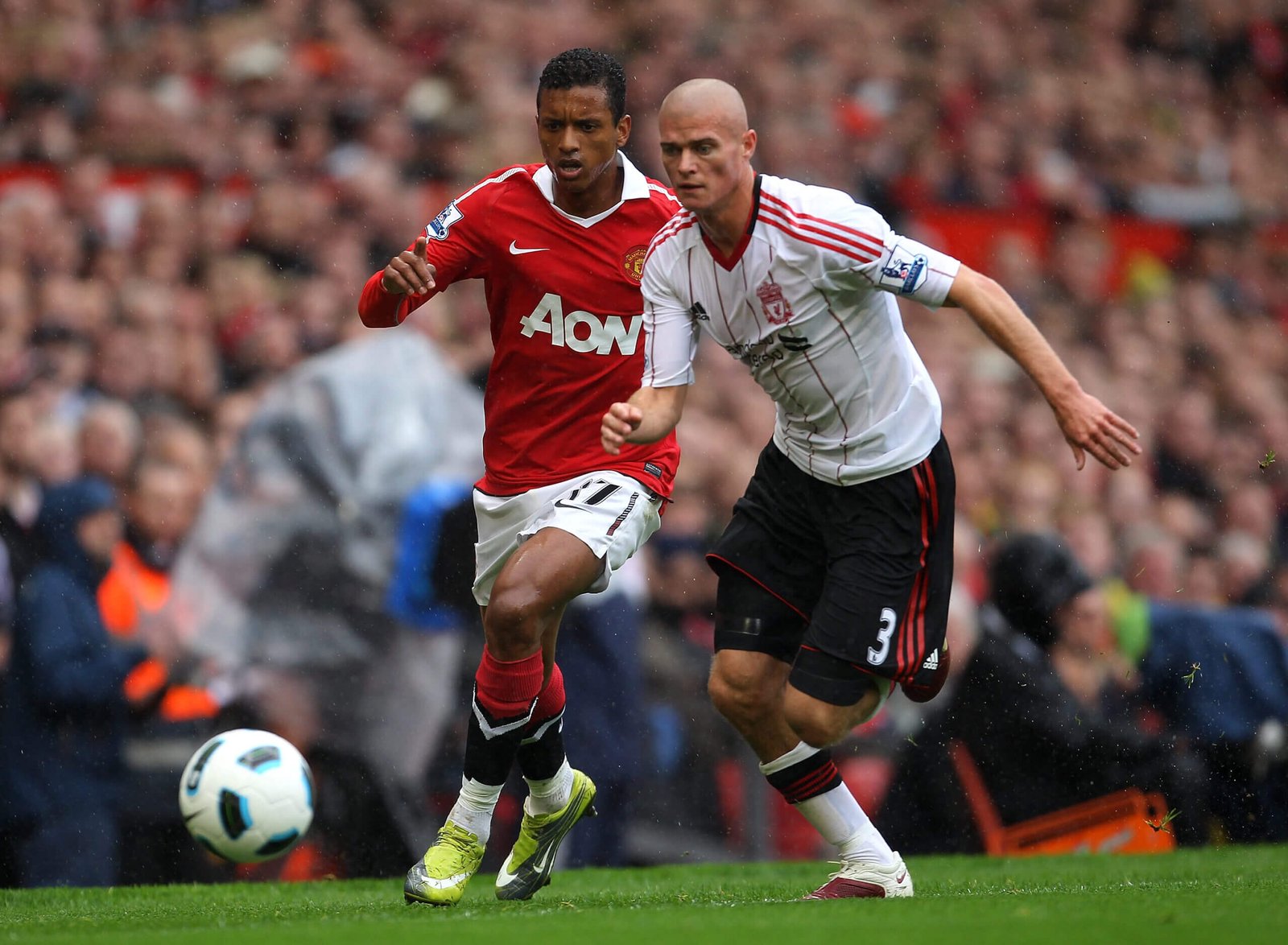
Paul Konchesky was one of Liverpool’s stranger signings (Alex Livesey/Getty Images)
Worst window: Summer 2012
City famously built on their 2011-12 Premier League title by bringing in Javi Garcia, Jack Rodwell, Matija Nastasic, Scott Sinclair and Maicon.
In fairness to them, this was the same summer they also tried to sign both Robin van Persie from Arsenal, losing out to Manchester United, and Eden Hazard of Lille, who chose new European champions Chelsea instead.
City were clearly trying to put the hammer down and cement their place at the top of English football (not to mention the fact that a few months later they were pushing hard to bring in Pep Guardiola from Barcelona as manager, not long after Roberto Mancini’s finest hour).
They obviously felt the signings they did make in that window, including two young English players seen as having bags of potential, would be able to take the club forward, but none of the moves worked out and summer 2012 has gone down in history as a missed opportunity.
Sam Lee
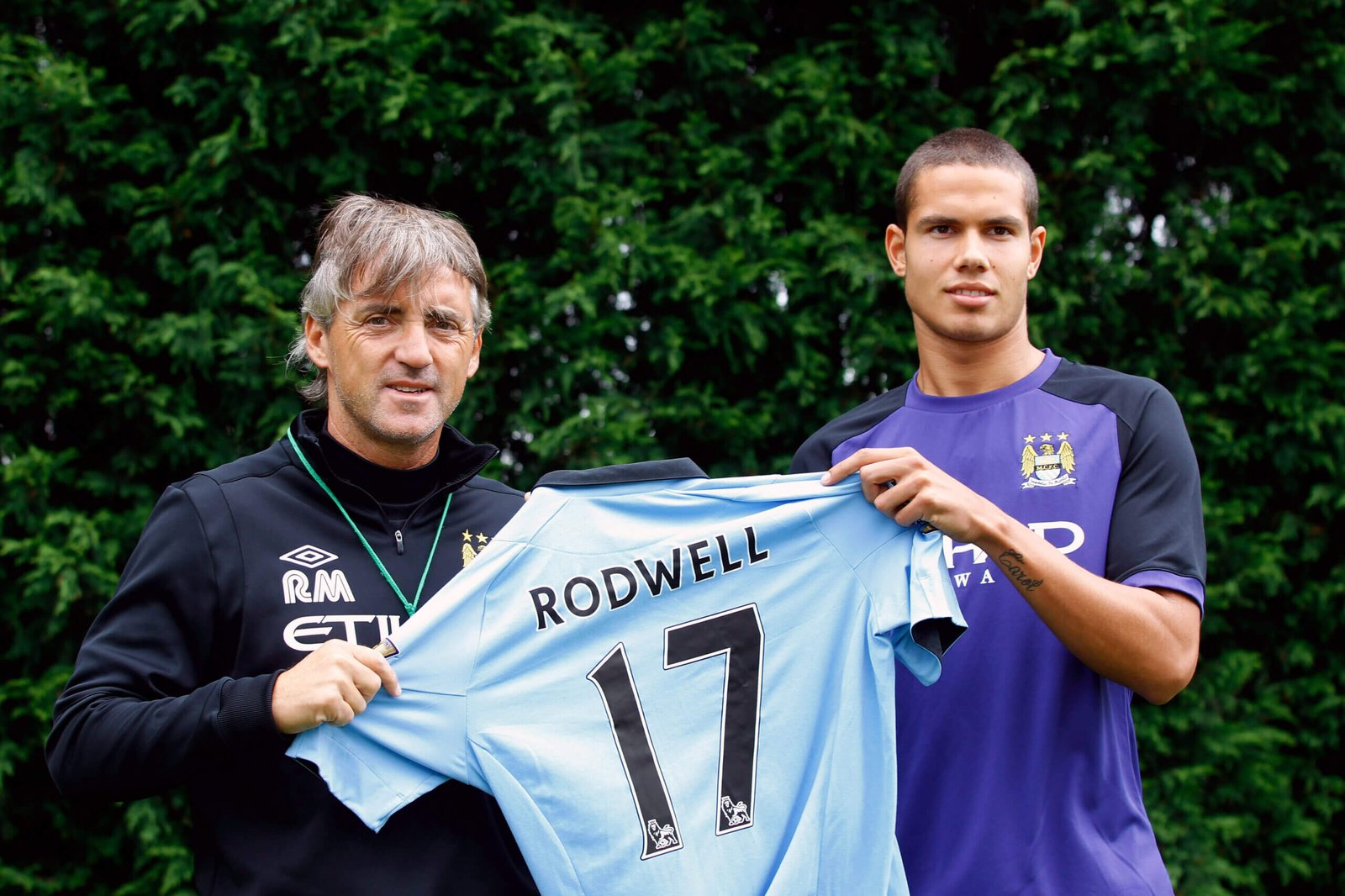
Jack Rodwell’s move to City did not work out (Paul Thomas/Getty Images)
Manchester United
Worst window: Summer 2013
It’s the obvious answer. Sir Alex Ferguson and David Gill, the chief executive, had both departed at the end of the 2012-13 title-winning season. David Moyes had arrived from Everton as the new manager. Thiago Alcantara, Leighton Baines and Ander Herrera (who they did sign a year later) were pursued but eventually fumbled before Marouane Fellaini arrived on deadline day… for £4million more than the £23m release clause which ran out a month earlier.
A special mention to the summer(ish) window of 2020-21.
Disrupted by Covid-19 and a mere 35-day gap between completing one season and beginning another, United pushed and pushed and pushed for Borussia Dortmund’s Jadon Sancho, but to no avail. Instead, Edinson Cavani, Donny van de Beek, Alex Telles and Facundo Pellistri arrived in an assorted grab-bag.
Ole Gunnar Solskjaer did well in the season that followed, with United runners-up in the Premier League and Europa League, League Cup semi-finalists and reaching the last eight of the FA Cup, but the club missed a crucial opportunity to back their manager while rivals were in a mild state of flux.
Carl Anka
Worst window: Summer 1997
John Barnes. Stuart Pearce. Ian Rush. How is that a bad window? Because this was 1997, not 1990. Barnes was 33, Pearce was 35 and Rush was 35.
Far worse windows (summer and winter windows were introduced in 2002) were to come in terms of talent, but this was the tipping point for the next two decades: the Kevin Keegan bubble had burst, replaced by Kenny Dalglish’s stultifying pragmatism. Jon Dahl Tomasson and Shay Given also arrived, but out went David Ginola and Les Ferdinand, and Alan Shearer had a long-term injury.
The boom was over, contraction taking hold, a club being deflated like a soiled airbed after a festival.
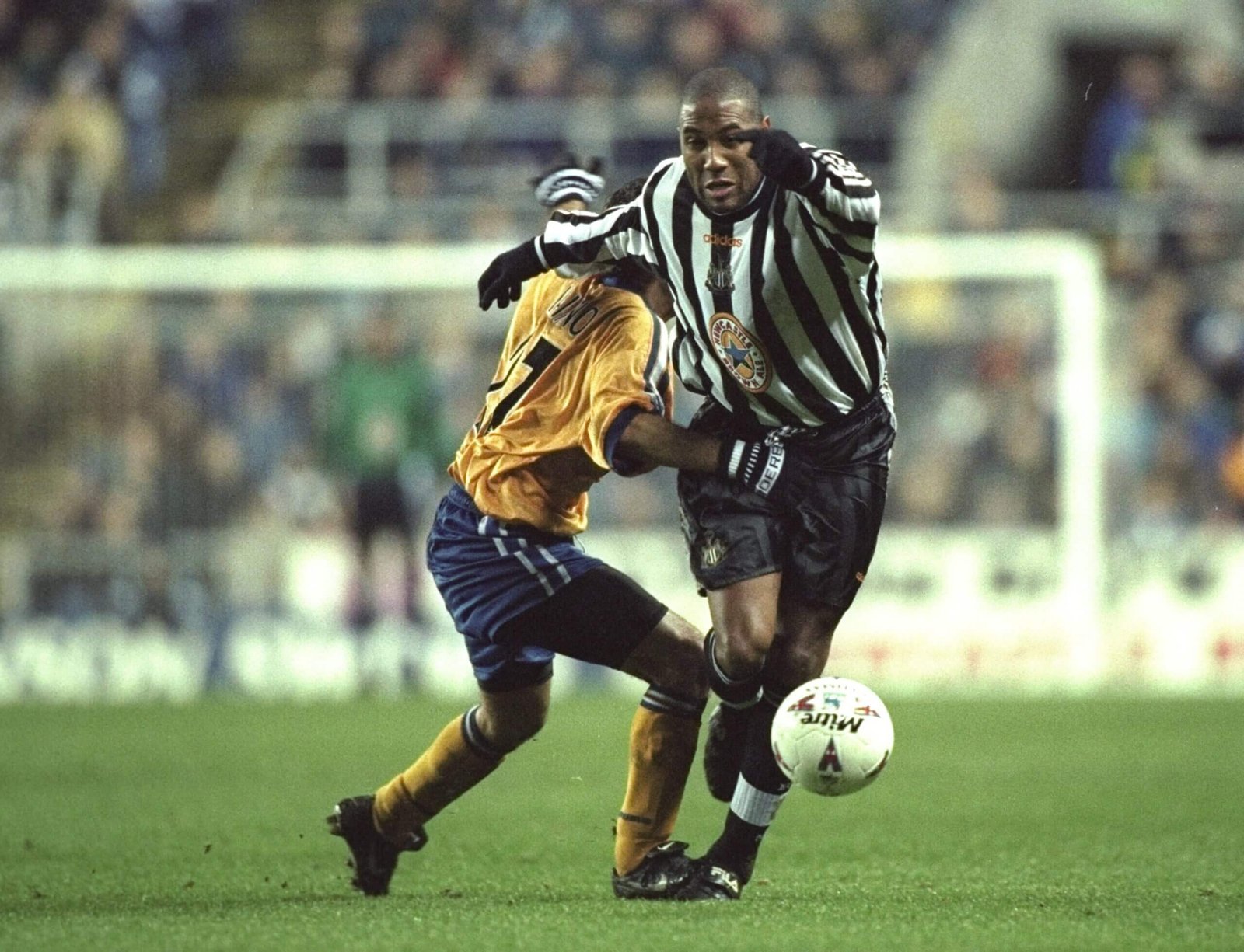
John Barnes joined Newcastle at the wrong end of the 1990s (Clive Brunskill /Allsport via Getty Images)
Pearce was fine, and Barnes played in all but one of Newcastle’s Champions League matches, including the 3-2 win against Barcelona. Barnes was also Newcastle’s top scorer in the league, but with just six goals — the Entertainers had been thoroughly dismantled.
The Champions League run ended at the group stage and Newcastle finished 13th in the Premier League. Joylessness loomed. The sad cherry on top? Signing Paul Dalglish. Nice work if you can get it, which you can if your dad’s the manager.
Andrew Hankinson
Worst window: January 2020
Before Cooper, there was Sabri Lamouchi. The old line about being able to cope with the despair but it’s the hope you can’t stand, was perfectly encapsulated for Forest fans by the 2019-20 season.
Under Lamouchi, Forest enjoyed a brilliant first half of that season. There were a few dips here and there but, by the end of January, they were not just ensconced in the unfamiliar surrounds of the play-off places, but knocking on the door of the automatics too. The first XI was good, but the thing that might have pushed them over the line was a few quality additions that January.
It would be unfair to blame the players who did arrive for the eventual collapse that would see them miss out on the play-offs in that Covid-interrupted season. But it did feel fitting that one of them, the striker Nuno da Costa, scored an own goal in the 4-1 home defeat to Stoke on the final day, which drove a stake through the already pretty dead heart of Forest’s promotion hopes.
Nick Miller
Worst window: January 2018
Six words from January 2018 that are enough to bring back nightmares: Southampton sign Guido Carrillo for £19million.
A few years on from the dreamy days of beating Inter Milan in the Europa League and Southampton’s infamous black box seemed to be faltering. Locked in a relegation battle under Mauricio Pellegrino — remember him? (Sorry for the reminder, these were desperate times.)
Needless to say, striker Carrillo, the only arrival in that window despite the sale of Virgil van Dijk, was not the answer. He scored zero goals at a cost of £1.9million per appearance.
Nancy Froston
Tottenham
Worst window: Summer 2013
Supporters had to deal with the pain of waving goodbye to Gareth Bale in 2013 and, to make matters worse, Tottenham wasted the £85million they received from Real Madrid. Roberto Soldado scored 24 times for Valencia in La Liga during the 2012-13 season, which is more than he managed (16) across 76 appearances for Spurs in all competitions.
Erik Lamela is a cult hero but never truly fulfilled his potential following a £30million move from Roma. Paulinho lasted two years before he moved to China after barely making an impact. Nacer Chadli was a useful option from the bench but Etienne Capoue and Vlad Chiriches struggled.
Apart from Lamela, the only other signing who qualified as a success was Christian Eriksen. He spent seven distinguished years with Spurs and was part of the team that came close to winning the Champions League in 2019.
Jay Harris
Worst window: Summer 2022
In the summer of 2022, West Ham spent £165million on Gianluca Scamacca, Lucas Paqueta, Emerson Palmieri, Thilo Kehrer, Maxwel Cornet, Flynn Downes, Alphonse Areola and Nayef Aguerd — the most they had spent in a window.
But integrating eight players into the team proved difficult for manager David Moyes, which led to West Ham losing five of their first seven league games.
Scamacca and Kehrer have since joined Atalanta and Monaco respectively, Cornet has been an underwhelming signing, while West Ham are open to offers for Aguerd and Downes could rejoin Southampton having returned from his season-long loan. Only Paqueta, Palmieri and Areola have improved the side.
Roshane Thomas
Worst window: Summer 2011
It may seem difficult to beat the summer of 2022, when Wolves spent a combined £80million on Matheus Nunes, Goncalo Guedes and Nathan Collins. But at least that side avoided relegation.
Eleven years earlier came a window just as poor but with worse consequences as Wolves broke up the limited but spirited squad Mick McCarthy had built and signed the higher-profile duo of Roger Johnson and Jamie O’Hara.
It was supposed to take the club to the next level — but the next level was down. Two relegations in two seasons were the result of disturbing the dressing-room dynamic.
Steve Madeley
(Top photos: Getty Images)
Read the full article here


